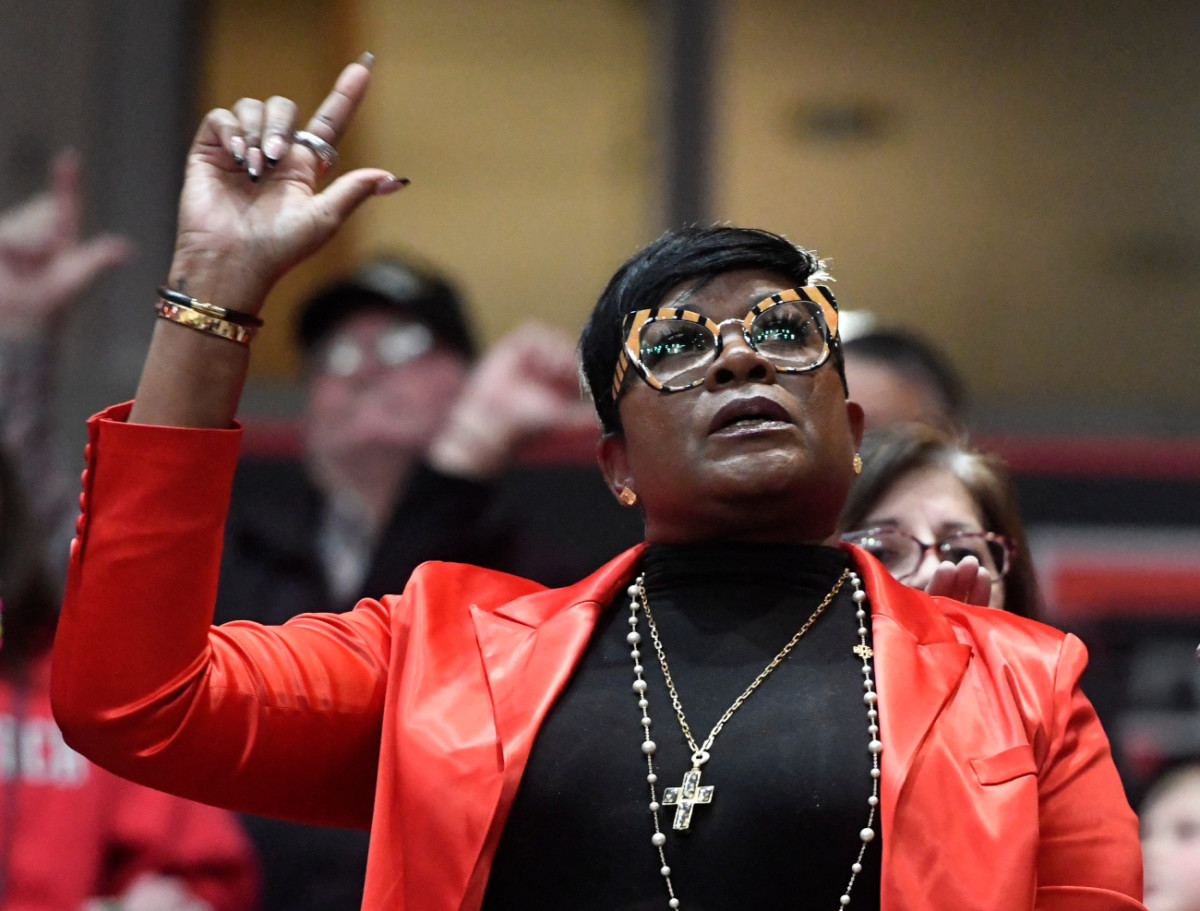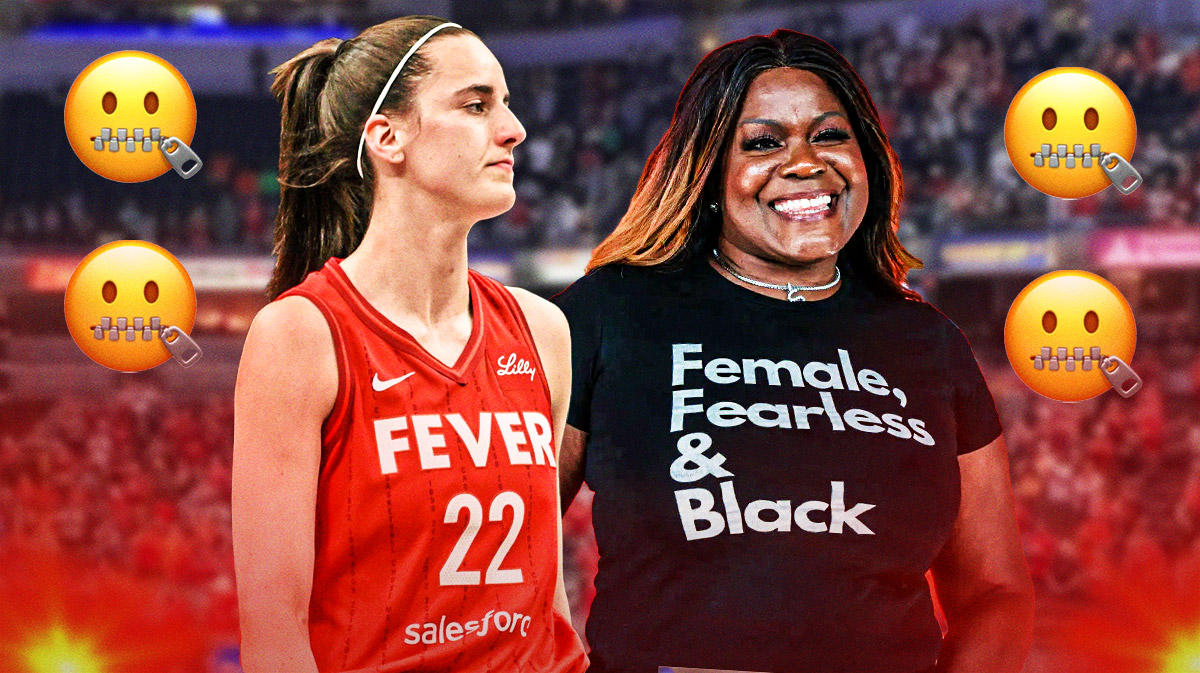Did a legendary WNBA player, renowned for her on-court prowess, see her coaching career derailed? The situation surrounding Sheryl Swoopes, a name synonymous with basketball excellence, has become a complex narrative of professional transitions and public scrutiny, leading many to question the circumstances of her departure from Loyola University.
The story of Sheryl Swoopes is one of undeniable achievement. Her dominance on the basketball court is irrefutable, a fact underscored by her impressive career statistics and accolades. Yet, her transition to coaching has presented a different set of challenges, ones that now appear to have culminated in a significant shift in her professional journey. The allegations, the public comments, and the subsequent actions all paint a picture that necessitates a closer examination of the facts.
The narrative surrounding Swoopes's recent career moves is multifaceted. Recent reports suggest a departure from her coaching role at Loyola University, a development that has spurred a flurry of discussion and speculation. Adding further layers to the story, controversies surrounding her comments on Caitlin Clark, the highly touted rookie, have fueled the fire, leading to heated debates among fans and analysts alike. This multifaceted situation raises important questions about career transitions, the pressures of public perception, and the complexities of managing a public persona.
Sheryl Swoopes's impact on the sport extends far beyond her playing days. She has been a visible presence in the media, often providing commentary and analysis. This role has, however, also exposed her to a different kind of scrutiny. Her opinions, particularly those concerning current players like Caitlin Clark, have become subjects of public debate. The convergence of these factors has placed Swoopes at a pivotal point in her career, making her a figure of considerable interest for basketball enthusiasts and observers of the sports landscape.
| Category | Details |
|---|---|
| Full Name | Sheryl Denise Swoopes |
| Date of Birth | March 25, 1971 |
| Place of Birth | Brownfield, Texas, USA |
| Height | 6 ft 0 in (1.83 m) |
| Position (Playing) | Guard/Forward |
| College | South Plains College, Texas Tech University |
| WNBA Draft | 1st Overall, 1997 (Houston Comets) |
| Professional Career Highlights |
|
| Coaching Career |
|
| Notable Accomplishments |
|
| Controversies |
|
| Reference Website | WNBA.com Player Profile |
Reports have surfaced about allegations against Swoopes, specifically brought forward by former players, which led to an investigation by Loyola University. This investigation, according to statements from the school, became a focal point in the assessment of her role. The public nature of the allegations and the subsequent investigation further complicated the situation. The university's stance on the matter signaled a seriousness that underscores the impact these allegations had on the dynamics of her position.
The shift in Swoopes's professional trajectory also coincides with public discussion surrounding her comments on Caitlin Clark. These comments, made on various platforms, were met with mixed reactions. Some viewed them as constructive criticism, while others perceived them as unduly harsh or dismissive. This public discussion added another layer to the narrative, highlighting the challenges of navigating public opinion and the potential for personal views to influence professional relationships.
The details of Swoopess departure from her role as a broadcaster have also come under scrutiny. Some observers have speculated about a connection between her comments on Caitlin Clark and the shift in her broadcasting assignments. According to Swoopes, she was contracted to do seven Dallas Wings games. Smith said that he believed Sheryl Swoopes was absent as an analyst due to her personal feelings toward Caitlin Clark. This connection has fueled conversations on social media and in sports media circles, raising questions about the influence of personal opinions on professional opportunities.
The echoes of the past still resonate in the present. Sheryl Swoopes's contributions on the court are undeniable. Her achievements serve as a reminder of her exceptional talent and dedication. However, the allegations at Loyola University, the public discourse surrounding her views on Caitlin Clark, and the reshuffling of her professional roles represent a new chapter. The "old clich 'if you don't have anything nice to say, don't say anything at all'" might be what Swoopes is subscribing to. The legacy of Sheryl Swoopes is, at this moment, being redefined not only by past successes but also by present challenges.
The situation with Swoopes raises a number of broader themes of interest. The story offers insights into the dynamics of sports and media, the impact of social media on public perception, and the delicate balance between personal opinions and professional responsibilities. As students, they deserve truth and transparency. The complexities of these issues, combined with the high profile of the individuals involved, make this story a compelling subject for sports fans and observers of the sports landscape. As the narrative continues to evolve, one thing is certain: Sheryl Swoopess story continues to be written.
The recent developments related to Sheryl Swoopes' career have brought various perspectives to the forefront. The decision made by Loyola University underscores the importance of accountability and adherence to standards. The focus on allegations and the investigations demonstrates a commitment to transparency, even when dealing with high-profile figures. The entire scenario brings to light the complexities of maintaining a professional image while also providing commentary.
The backlash on social media for her recent comments about Caitlin Clark on the Gil's Arena podcast highlights the power of public opinion in the digital age. Social media platforms amplify voices and can quickly turn personal opinions into public controversies. This dynamic demonstrates how the digital landscape influences sports journalism and the careers of public figures. It highlights the significance of careful communication, especially when discussing controversial issues.
Swoopes's comments on the WNBA's rookie class and her take on the Indiana Fever, even without Clark, could still make the playoffs. This has further fueled discussions and controversies. This demonstrates how sports analysts need to balance their views with respect for the players and the games. It is a good reminder that personal opinions, when expressed publicly, can have both positive and negative effects.
The narrative around Sheryl Swoopes reflects the evolution of the WNBA itself. The league has grown in popularity and visibility, accompanied by heightened media scrutiny and public interest. The rise of social media has made it easier for the audience to voice opinions, which has influenced the players and the analysts. The impact of the modern media environment has shaped the stories of the players and the analysts.
The recent events involving Sheryl Swoopes demonstrate the complex interweaving of personal views, professional roles, and public perception. This is a reminder that the journeys of successful athletes are never simple. The situations that have surfaced demonstrate the significance of navigating professional landscapes and managing public image, especially as the WNBA continues to evolve and adapt. As the narrative develops, it will be fascinating to observe how these dynamics will continue to reshape the careers of high-profile athletes and the discussions surrounding them.
Loyola University has parted ways with womens basketball coach Sheryl Swoopes, the school said in April that it would investigate allegations against Swoopes brought by former players. The details of the allegations have not been released publicly.


